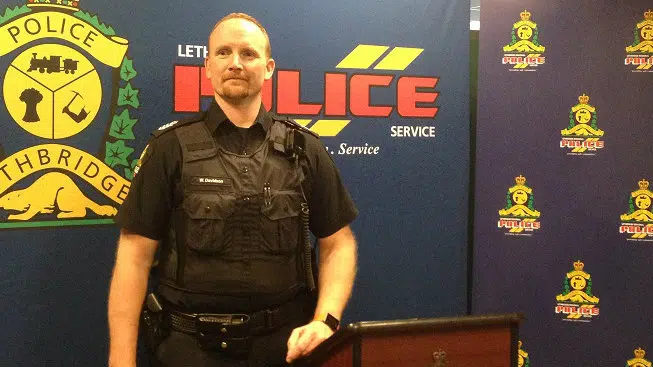
LPS outline what to know ahead of mandatory alcohol screening coming into effect this month
LETHBRIDGE – The Lethbridge Police Service has decided to get right out in front of the changes coming in relation to mandatory alcohol screening by explaining what’s going to happen.
Sgt. Wade Davidson, with the Traffic Response Unit, says effective Dec. 18, the federal government is introducing a number of new initiatives to combat impaired driving.
“One of the big initiatives that’s coming out is the mandatory alcohol screening. What that’s going to mean is that up until December 18th, police officers have required reasonable suspicion that a person has alcohol in their body before they can make a roadside breath demand. As of December 18th, how it’s going to work is an officer who has an approved roadside screening device with them will be able to make a very brief demand of that person to provide a sample as soon as they are stopped.”
The traffic stop would have to be for a lawful grounds, according to Davidson, but as soon as they’re stopped the officer will be in a position to make a mandatory alcohol screening demand.


